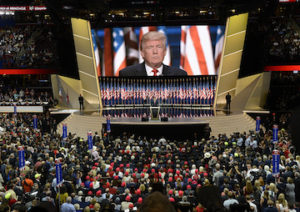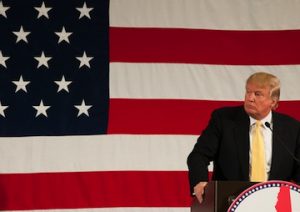Stop Blaming the System
We have become political hypochondriacs. We seem eager to declare that "the system" has come down with some dread disease, to proclaim that an ideological "center" blessed by the heavens no longer exists, and woe unto us. An imperfect immigration bill is pulled from the Senate floor and you'd think the Capitol dome had caved in.WASHINGTON — We have become political hypochondriacs. We seem eager to declare that “the system” has come down with some dread disease, to proclaim that an ideological “center” blessed by the heavens no longer exists, and woe unto us. An imperfect immigration bill is pulled from the Senate floor and you’d think the Capitol dome had caved in.
It’s all nonsense, but it is not harmless nonsense. The tendency to blame the system is a convenient way of leaving no one accountable. Those who offer this argument can sound sage without having to grapple with the specifics of any piece of legislation. There is the unspoken assumption that wisdom always lies in the political middle, no matter how unsavory the recipe served up by a given group of self-proclaimed centrists might be.
And when Republicans and Democrats are battling each other with particular ferocity, there is always a call for the appearance of an above-the-battle savior who will seize the presidency as an independent. This messiah, it is said, will transcend such “petty” concerns as philosophy or ideology.
Finally, those who attack the system don’t actually want to change it much. For example, there’s a very good case for abolishing the United States Senate. It often distorts the popular will since senators representing 18 percent of the population can cast a majority of the Senate’s votes. And as Sen. John McCain said over the weekend, “The Senate works in a way that relatively small numbers can block legislation.”
But many of the system-blamers in fact love Senate rules that, in principle, push senators “toward the middle” in seeking solutions. So they actually like the system more than they let on.
As it happens, I wish the immigration bill’s supporters had gotten it through — not because I think this is great legislation but because some bill has to get out of the Senate so real discussions on a final proposal can begin.
Notice how tepid that paragraph is. The truth is that most supporters of this bill find a lot of things in it they don’t like. The guest-worker program, in particular, strikes me as terribly flawed. The bill’s opponents, on the other hand, absolutely hate it because they see it as an effective amnesty for 12 million illegal immigrants. And boy, did those opponents mobilize. In well-functioning democracies, mobilized minorities often defeat unenthusiastic majorities.
And some “centrist” compromises are more coherent and politically salable than others. Neither side on the immigration issue has the popular support to get exactly what it wants. So a bill aimed at creating a path to citizenship for illegal immigrants is full of grudging concessions to the anti-immigration side. These have the effect of demobilizing the very groups that support the underlying principles of this bill. That’s not a system problem. It just happens that immigration is a hard issue that arouses real passion.
Typically, advocates of the system-breakdown theory move quickly from immigration to the failure of President Bush’s Social Security proposals. Why, they ask, can’t the system “fix” entitlements?
The simple truth is that a majority of Americans (I’m one of them) came to oppose President Bush’s privatization ideas. That reflected both a principled stand and a practical judgment. From our point of view, a proposal to cut benefits and create private accounts was radical, not centrist.
An authentically “centrist” solution to this problem would involve some modest benefit cuts and some modest tax increases. It will happen some day. But for now, conservatives don’t want to support any tax increases. I think the conservatives are wrong, and they’d argue that they’re principled. What we have here is a political disagreement, not a system problem. We have these things called elections to settle political disagreements.
Is Washington a mess? In many ways it is. The simplest explanation has to do with some bad choices made by President Bush. He started a misguided war that is now sapping his influence, he has treated Democrats as if they were infected with tuberculosis, and Republicans in Congress as if they were his valets. No wonder he’s having trouble pushing through a bill whose main opponents are his own ideological allies.
Maybe you would place blame elsewhere. But please identify some real people or real political forces and not just some faceless entity that you call the system. Please be specific, bearing in mind that when hypochondriacs misdiagnose vague ailments they don’t have, they often miss the real ones.
E.J. Dionne’s e-mail address is postchat(at symbol)aol.com.
(c) 2007, Washington Post Writers Group
Your support matters…Independent journalism is under threat and overshadowed by heavily funded mainstream media.
You can help level the playing field. Become a member.
Your tax-deductible contribution keeps us digging beneath the headlines to give you thought-provoking, investigative reporting and analysis that unearths what's really happening- without compromise.
Give today to support our courageous, independent journalists.






You need to be a supporter to comment.
There are currently no responses to this article.
Be the first to respond.